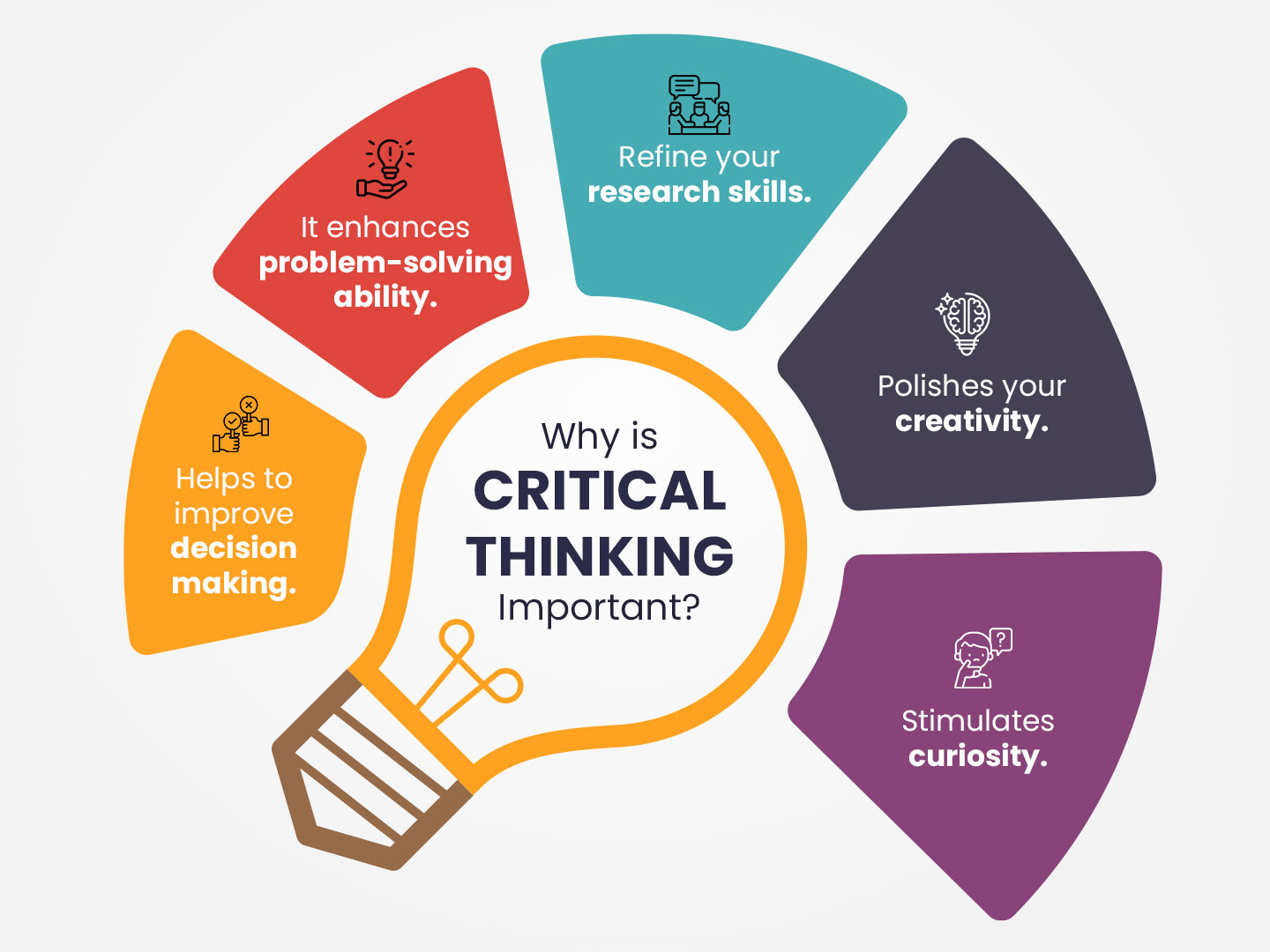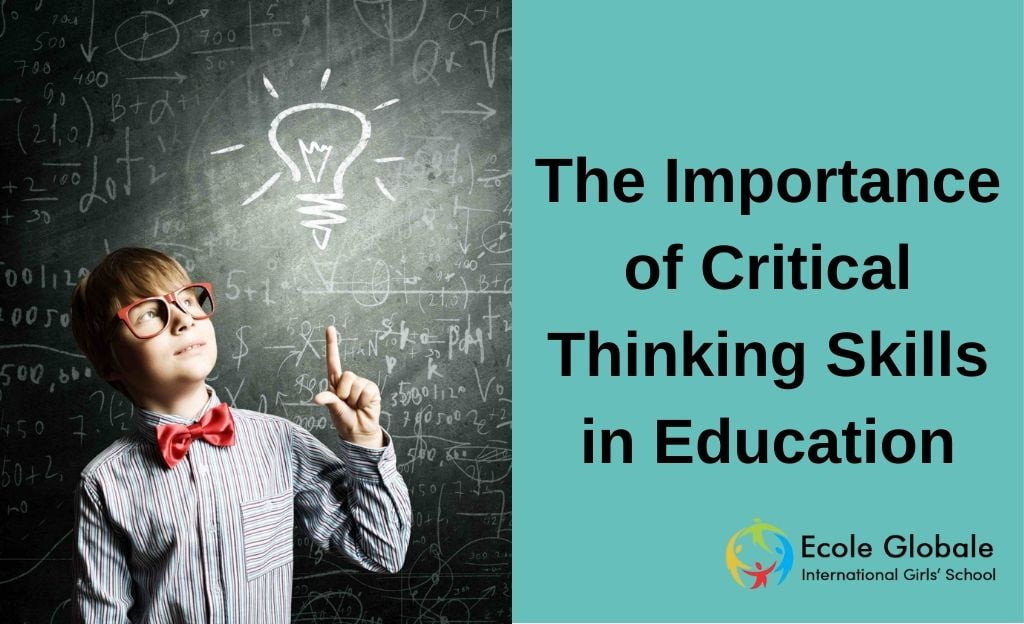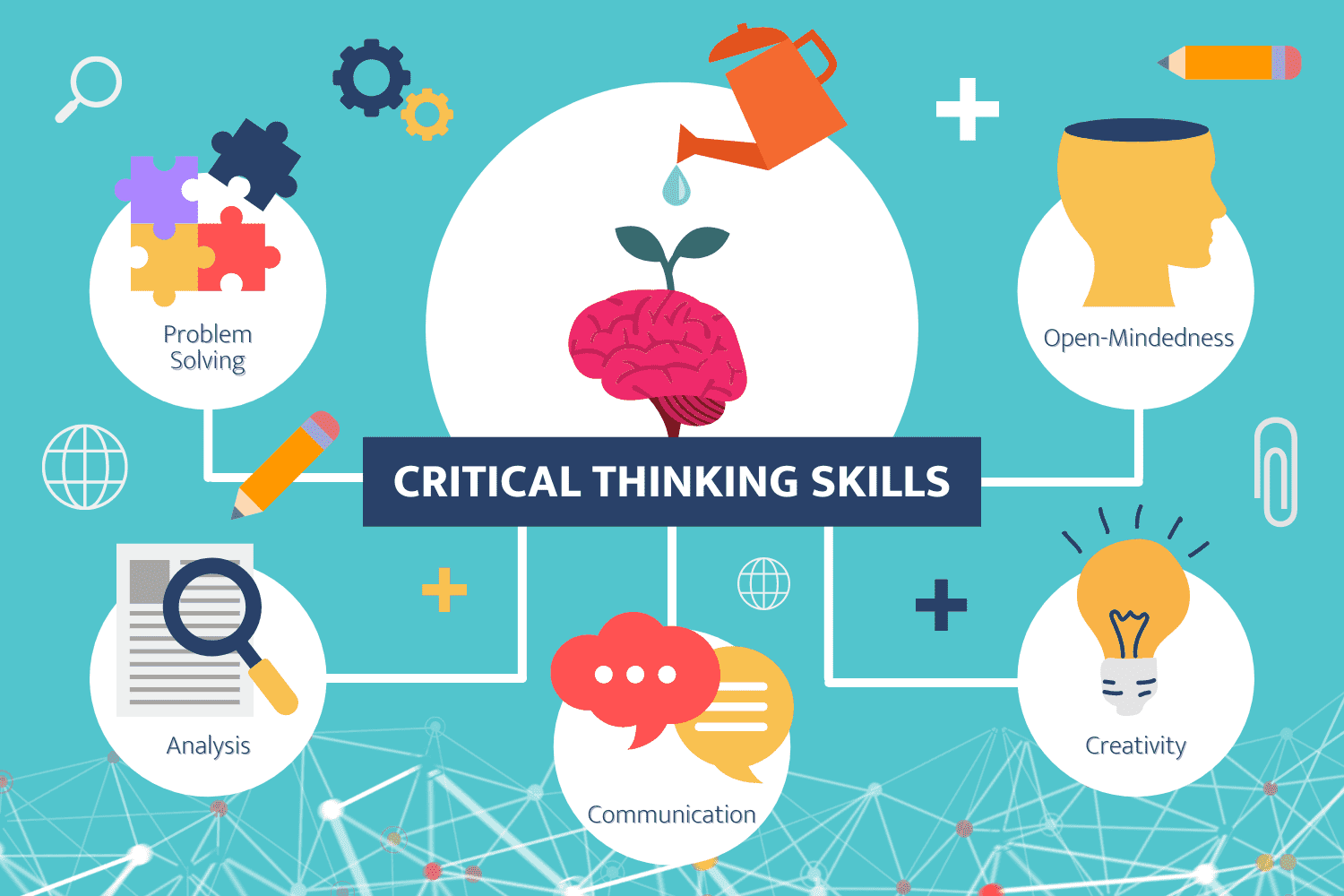Critical thinking is one of the most important skills a student can learn. It’s a skill that will be used throughout your entire life. Many people don’t know the importance of these thinking skills, but those who understand the importance of critical thinking skills value them the most.
Critical thinking skills are among the most important skills that children can have. A child can develop the ability to think independently and make logical judgments throughout their learning years if they understand those skills in a way that seems relevant to them. This article is about helping parents understand why critical thinking skills are so important.
Critical Thinking
As per research conducted by the best Boarding schools in Dehradun, Critical thinking is the process of analyzing information and coming up with logical conclusions. It is different from normal thinking as it requires one to be skeptical and open-minded. Critical thinking helps people analyze their own beliefs and ideas and others. It also helps people learn how to think more effectively and make better decisions.
It is the process of actively and skillfully conceptualizing, applying logic and reasoning, identifying the main idea, and researching relevant information.
However, critical thinking is not just about problem-solving; it also involves understanding and evaluating information, making decisions, and communicating ideas effectively.
Significance of critical thinking
Critical thinking skills are essential in every academic environment. They help students analyze the information they receive from teachers, textbooks, lectures, and other sources. They are also vital for learning new concepts and solving problems.
The ability to think critically can help you solve problems, make better decisions and understand complex concepts in the classroom. It also helps you become an active learner who understands and learns from experience rather than just memorizing information.
At work, critical thinking skills help you find ways to improve processes, make better decisions about purchases and pursue new opportunities for career advancement. In social situations, it helps you listen carefully and respond appropriately so that you don’t offend others or cause unnecessary conflict.
The importance of critical thinking skills in education is established by research. Studies have shown that students who possess these skills are more successful academically and professionally.
Critical thinking involves an open-minded attitude towards new ideas, a willingness to challenge assumptions, beliefs, and opinions, a desire to know the truth about things, a commitment to fairness in judgment, and an appreciation of diverse views.
Critical Thinking Skills in Education

The importance of critical thinking skills in education cannot be overstated. Not only does it help students develop their abilities to reason through problems, but it also helps them learn how to evaluate information to make informed decisions.
Critical thinking is essential in all aspects of life. It is important in education because it helps students develop their thoughts, understand and analyze information, solve problems, and make decisions independently. Critical thinkers can deal with new situations effectively. They can also adapt their knowledge as required while remaining open to new ideas.
Critical thinkers are also better prepared for life after graduation because they will have an easier time adapting to new situations that require critical analysis. Critical thinking skills are used every day at work -whether you’re doing research on the Internet or trying to solve a problem with your computer at home, you need to evaluate information before making a decision based on it. These skills also help us avoid accepting ideas as facts simply because they seem true.
Teaching Critical Thinking Skills
The following article outlines some common strategies for teaching critical thinking skills. It also provides examples of how they might be used in the classroom:
- Provide opportunities for students to practice their critical-thinking skills throughout the day through debates, interactive activities, and discussion groups. Provide opportunities for children to develop their thoughts by encouraging them to ask questions, generate ideas and explore different perspectives.
- Encourage your students to formulate questions about what they are learning instead of just accepting information at face value. Encourage them to ask clarifying questions when they don’t understand something or have a question about it. Also, encourage them to think about whether there are other ways of looking at a problem before deciding on a solution.
- Teach students how to make connections between ideas from different areas of study so that they can see how concepts are related and apply them more effectively in real-life situations or future courses.
- Help children become better at forming generalizations about concepts so that they can apply these concepts appropriately in new situations.
- Encourage children to find out more about topics that interest them.
Tips to help improve Critical Thinking Skills
-
Approach problems with an open mind
Don’t stick rigidly to your original ideas or conclusions. Be willing to change your mind based on new evidence or new ways of looking at things. When approaching a problem, it’s easy to get stuck in one way of thinking or doing things. It can make it more difficult for us to find solutions. When approaching a problem, try not to limit yourself by thinking about what others have already tried or what has worked in the past. Instead, think about all possible solutions and how they might work together.
-
Don’t jump to conclusions
Don’t assume things without sufficient evidence (or at least look for evidence that you can use). Resist jumping to conclusions — even negative ones — until you have all the facts. Look at the situation from every angle and consider all the facts. Don’t jump to conclusions or make assumptions about what others are thinking or feeling.
-
Look for evidence that supports your beliefs but also for evidence against them
Sometimes we tend to look only for evidence that supports our existing beliefs or theories rather than seeking out information that challenges those beliefs or theories (this is called confirmation bias). If we find something that challenges our beliefs or theories then we tend not to believe it because it doesn’t “fit” with what we already believe.
-
Think about the big picture
Sometimes when we’re trying to solve a problem or analyze something, it’s easy to focus on small details instead of the whole situation. While details are important, they don’t always tell the entire story. Take time to consider all aspects of the situation before deciding what action (if any) needs to be taken next.
-
Consider multiple points of view
Think about all possible solutions, then weigh their pros and cons before making a decision or taking action on an issue, task, or problem – especially if there’s no right or wrong answer. When making an important decision, it’s important not to rely on one person’s opinion but instead consider multiple points of view before making your choice. This way is less likely to make mistakes based on false information or assumptions about the situation.
-
Ask questions and seek answers
Ask yourself why something happened and how it might change in the future. Ask others how they would solve this problem if they were in charge of it and what they think should happen next time this situation arises.
-
Use logic
Critical thinking involves using rational arguments and reasoning rather than relying on emotion or personal feelings about an issue. You want to ensure that your thoughts are based on facts and evidence rather than conjecture or assumptions about what might happen in the future. Setting realistic goals will help keep your motivation high while also ensuring that you stay focused.
Conclusion
Critical thinking skills are a necessary part of education and life. They can be applied to any situation that requires good judgment, decision-making, and problem-solving. Critical thinking makes you more effective at work, helps you improve your relationships, and allows you to make better decisions in everyday life.
For any queries related to parenting, schooling, or any student-related tips, click here to check out our latest blogs.







